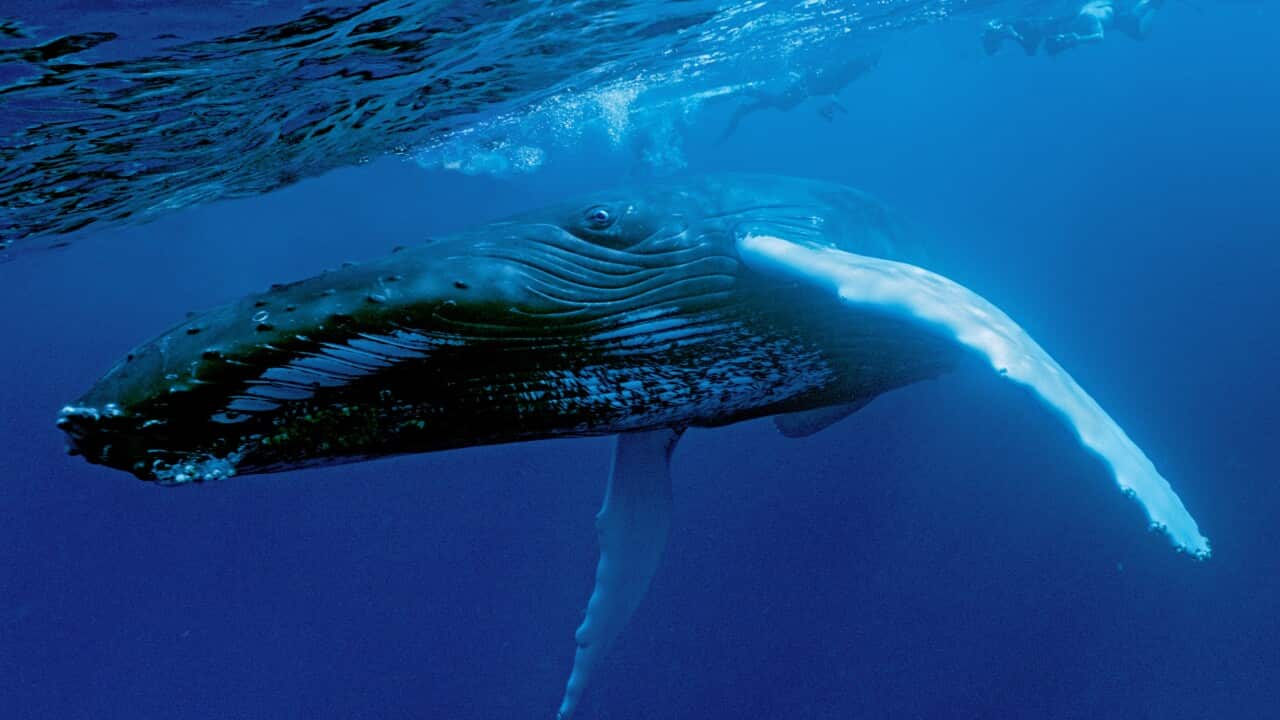When whales strand or wash up dead on Australia's , authorities are left with a colossal mess to clean up.
Typically the solution is to truck their hulking carcasses away and bury them.
It's costly and laborious work, as West Australian authorities found in December when a sperm whale weighing more than 30 tonnes died on a sandbar south of Perth.
But it also robs the ocean of valuable food for sharks, sea birds and other creatures.
What happens when a whale is towed out to sea
Griffith University whale expert Olaf Meynecke is campaigning for a switch to disposals at sea, and he's developed a predictive tool to reduce the risk of rotting carcasses washing back to shore.
When a humpback died off the southeast Queensland coast last year — likely from a ship strike — Meynecke seized the opportunity to work out how factors such as wind, ocean current and predation influenced where it ended up.
The carcass was repositioned 30km offshore and fitted with a satellite tag that tracked its movements for six days, before it sank to the sea floor.
In the first few days, wind was the main thing driving its drift, given the whale was still bloated and protruding from the water.
But after that, decomposition, the release of gas and predation by sharks left the carcass lower in the water and the current took over as the primary driver.
Meynecke says authorities worldwide have been reluctant to opt for sea disposal as experience has shown that remains can wash back in again, often bringing hungry sharks.
But his predictive tool that factors in the drivers of drift means carcasses can be towed to safe locations where that's highly unlikely to occur.
"Our study shows that forecasting of where whale remains might end up when floating at sea is possible with surprisingly high accuracy," Meynecke said.
LISTEN TO

Experts seeking to answer whale stranding riddle
SBS News
26/04/202401:11
Why whales should be buried at sea
Meynecke says there are many nutrients in whales and keeping them in the ocean as their carcasses break down is very important.
"One very obvious benefit is food for sharks and sea birds that will feed on a carcass, but also deep sea creatures and microorganisms," he said.
"Offshore disposal can be an ethical, cost-effective and safe option if managed appropriately."









